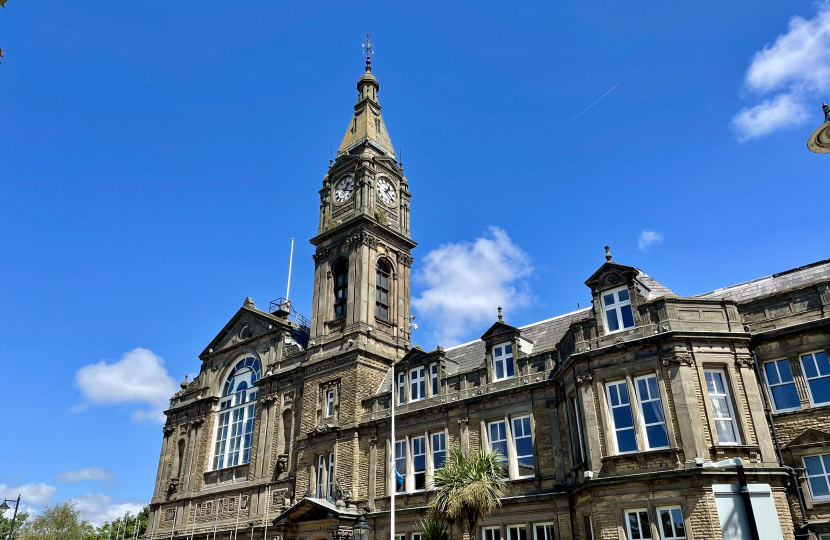
Have we sufficient school places in Sefton?
As we journey along our roads we are seeing large numbers of homes being built in our locality. Families with children, some new to the district, will undoubtedly need access to health services and of course schools and colleges. One does wonder, what level of additional health care facilities have been planned to support all these new developments. Are there enough school places one wonders; will I be able to get my child into the school of my first choice?
One has only to witness the situation in Maghull where Sefton Labour controlled Council has refused planning permission for an extension to Summerhill Primary School, which would have enabled them to accommodate an additional 120 pupils from the newly created housing development. Money was not an issue as the extension was funded through Section 106 monies. How can a Labour Council give planning permission for a housing estate and then refuse planning permission for an extension to a primary school?
Sefton Local Authority is responsible for ensuring that there are enough school places for the ever increasing population. Our local Labour Councillors must surely be concerned that many parents are going to find it difficult to obtain their first choice of school for their offspring. According to Sefton’s website the situation with regard to the provision of sufficient school places is “under review.” As a matter of urgency, this issue must not be forgotten.
OFSTED and improving school performance
Local parents have of course also been aware of the fact that several of the large secondary schools in the locality have had disappointing Ofsted ratings. This undoubtedly causes anguish for parents who are choosing a secondary school for a year 7 pupil or a sixth form course for their older child.
Parents, must though, have faith in our schools to improve their performance. Our local schools and families have a pivotal role in shaping the culture of our communities. They need the support and goodwill of those that live in the community. Hard working, dedicated staff in these schools will want to be part of the journey of improvement.
Academies and Multi-Academy Trusts
Since 2013 . We have seen several Secondary Schools in Sefton converting to Academies, which removes them from local authority control.
In an effort to improve their performance and the educational opportunities for pupils, several schools have linked to recently become Multi Academy Trusts (MATs). This can include secondary schools forming clusters, or primary schools joining with secondary schools to share best practice. Evidence has shown that MATs are able to develop by sharing staff expertise, resources and training and put in place effective leadership and guidance where it is most needed. The Leadership team across these schools and the Governing Body become more accountable for student and whole school performance and takes the operation of the schools out of local authority control. (The council however remains responsible for ensuring appropriate numbers of school places, especially for pupils who require specialist support).
There are a great number of dedicated hard working teachers within these schools who want to contribute towards the improvement in the performance of their students and this move towards academy status is a major step along that road.
Schools cannot accomplish this alone. Teachers cannot teach pupils who are not in school. Absence from school impacts upon the continuity of learning Parents and carers have an important role in ensuring that their child attends school regularly (not less than 95% attendance). Poor attendance and poor punctuality is a potential safeguarding risk and that is one of the reasons why schools place such importance on regular attendance.
School uniform and social equality
As the new academic year approaches the purchase of school uniform is a large expense for families. Schools work with local suppliers to provide supplies of school uniform and they are an important part of the school culture. Wearing school uniform can increase a sense of belonging and pride and helps to diminish economic and social barriers between students. To allow innumerable variations would mean that schools would have to adopt a long list of do’s and don’ts to formulate their dress code. This wastes valuable time which would be better spent on teaching and learning rather than on confrontational conversations. After wearing their school uniform for five days a week, pupils can develop a greater sense of appreciation for their other clothes and possibly keeping them tidier!
The importance of reading
We have all sat next to young children as they begin to learn to read. For some children reading can be a difficult skill to conquer and there has always been a keen debate on the best approach to use. As a country we have seen significant improvement in reading in our schools. Again the hard work, done by our teachers has had significant impact.
In a report published in May 2023 England came fourth internationally for primary reading proficiency in the Progress in International Reading Literacy Study (PIRLS).
Despite disruption from the pandemic, England’s score remained stable, following significant improvements in 2011 and 2016. Since 2016 reading performance has risen dramatically with England now coming fourth out of the 43 countries that tested the standard 9-10 year old cohort. England’s score of 558 was well above the international average of 520 and the European average of 524.
Brilliant teaching and hard work from teachers and support staff have contributed to these results. Driving up literacy rates is central to improving school performance. Literacy underpins all aspects of the curriculum and is central to the Government’s plan to grow the economy.
A safer and healthier journey to school for our children
Many parents and carers worry about the journey to and from school that our children take, especially when they have to attend secondary school.
Increasingly busy roads, made worse in the winter time can make travelling to school hazardous. The Conservative Government have been aware of this and have worked in partnerships with sustainable transport groups and local authorities to devise strategies to help make streets and neighbourhoods safer for all concerned.
Utilising the Government’s funding from The Safer Street Fund, two schools in Southport are pioneering new ways of making the journey to school safer and hopefully improving the air quality for all.
What will it mean for vehicles?
As the scheme aims to reduce the number of car journeys and frustrating congestion an Experimental Traffic Regulation Order will see roads outside both schools closed off to most vehicles during the start and end of a school day.
The School Streets pilot is being rolled out following detailed discussions and thorough consultation with pupils, staff and parents at both Greenbank & Birkdale High School, as well as residents living nearby. During the early part of June 2023 the pilot team was based outside the schools to answer questions from residents about the implementation of this scheme.
The scheme will involve the closure of both Windy Harbour Road and Hastings Road to most vehicles at the start and end of the school day during term time.
Exemption Permits will be issued to residents, school staff & blue badge holders, staff and visitors of Hillside Golf Club.
Hopefully the road around each of these schools will be free of cars and traffic congestion will be reduced. Air quality and safety will also be improved. Pupils are to be more actively encouraged to use public transport or to walk or cycle to school. Those pupils who do travel to school are to be dropped off a short distance away from the school entrance and encouraged to walk the remainder of their journey.
These two schools are obviously the pilot schools involved in the introduction of this initiative.
There will obviously be discussion with all stakeholders in an effort to create a safer space outside our schools, reduce traffic congestion for residents and hopefully ensure a cleaner, healthier environment for the benefit of all concerned.
The Conservative Government have made significant changes to education and the impact of these changes is now being seen across the country. Schools, teachers and Governors need the continued support of parents and carers in sustaining this improvement for the benefit, of local communities and the country.

